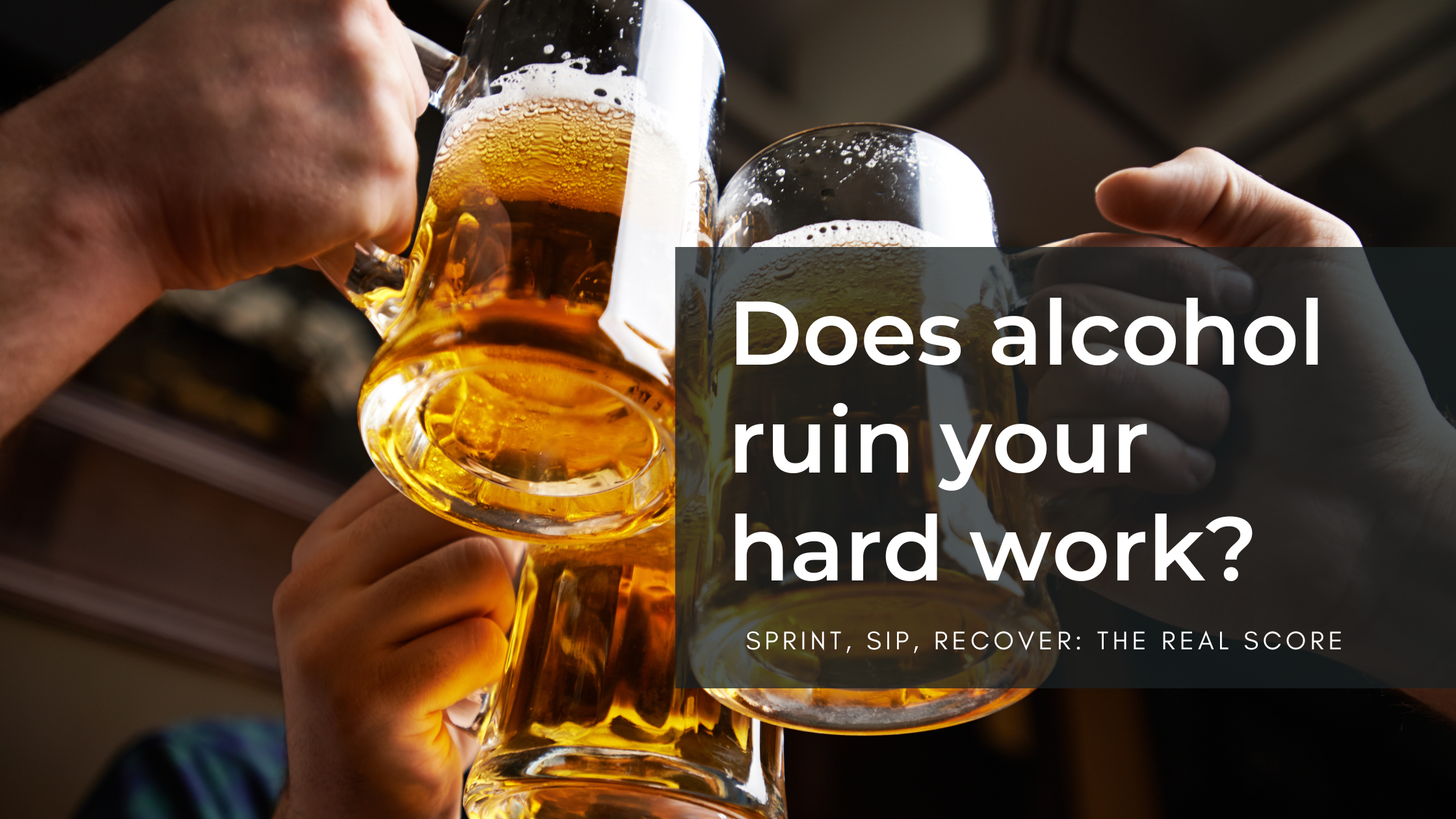
Or maybe you’ve finished a tough interval session with your running group and need to rehydrate before heading home. When it comes to running and booze, the two often go together like blister-free socks on race day.
But is alcohol erasing the gains from your efforts?
How alcohol affects your body
We all know that alcohol is a depressant and inhibits cognitive and physiological function. It’s why we don’t drink and drive. But here’s how it actually affects you every time you drink.
First of all, alcohol is carcinogenic. Whenever your liver processes alcohol, a toxic byproduct, acetaldehyde is produced. In lab tests, it’s been shown to cause DNA damage which can lead to cancer.
Alcohol also increases cortisol levels, which are associated with hypertension, ulcers, faster ageing and impaired immunity. And it messes with other hormones too, lowering testosterone in men and increasing oestrogen in women.
Finally, while it’s a relaxant, that glass of wine or schooner of beer is disrupting your sleep cycle and impairing your body’s ability to rejuvenate.
The science on alcohol after exercise
A growing number of studies are showing that drinking after exercise suppresses recovery and adaptation and there’s no safe level of alcohol consumption. Drinking large amounts (often the case in post-competition celebrations and end of season for team sports) reduces glycogen storage, at a time when stores are already depleted.
The problem isn’t just the alcohol itself, but also that the alcohol is displacing healthy carbohydrates, protein and fluid that an athlete might otherwise be ingesting.
And as we mentioned already, recovery during sleep is also affected.
This might sound grim for those of us who love a cold, frothy bevvy after an intense effort or group run. It’s part reward, part social connection and pure enjoyment. But even the experts themselves recommend looking at alcohol consumption as a continuum, not a binary. Meaning, the less you drink the better, but you don’t have to completely abstain if you’re aware of the risks.
How to drink and train responsibly
Drinking is such a big part of our sporting and social culture, it can feel like we’re missing out if we don’t participate. But there are ways to have your wine and drink it too.
Reduce the amount
If you know you’ll be knocking back a couple after your regular Friday night run, consider abstaining earlier in the week. Or use the age-old hack of one alcoholic drink followed by one (or several) non-alcoholic one.
Fuel properly
Your drink may not be the healthiest choice but your food intake should be. After a hard run, your body needs protein, carbs and liquid for recovery. Look for sources rich in vitamins and minerals, such as legumes, lean meats, vegetables and fruits. Include antioxidants to help mitigate some of the damage done by alcohol, as well as vitamin B and folate.
Try alcohol-free beer or wine
Alcohol-free drinks have come a long way, with the non-alcoholic beer market projected to grow by over nine percent a year. Gone are the days of strange-tasting fizzy liquid marketed at pregnant women; demand is booming and the range has expanded to keep up. Spirits, wines, bubbly, beer… there’s a zero-proof version of it out there that doesn’t taste half bad. Give it a go. Your hangover-free future self will thank you for it tomorrow.
If you have a spare two hours, check out Dr Huberman’s in-depth podcast episode looking at how alcohol affects your body. He covers everything from brain and mood to microbiome.
